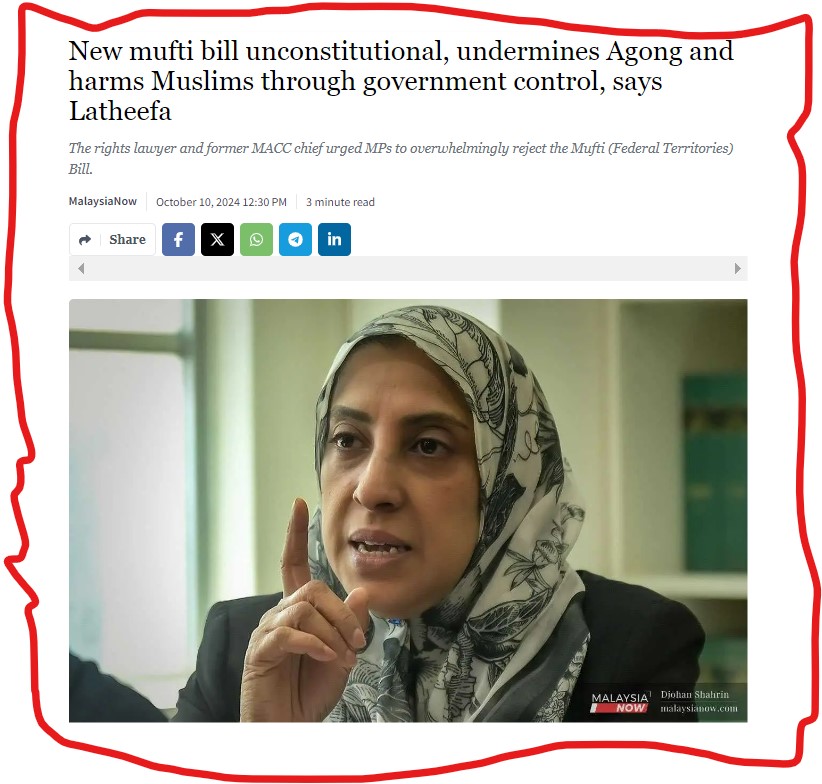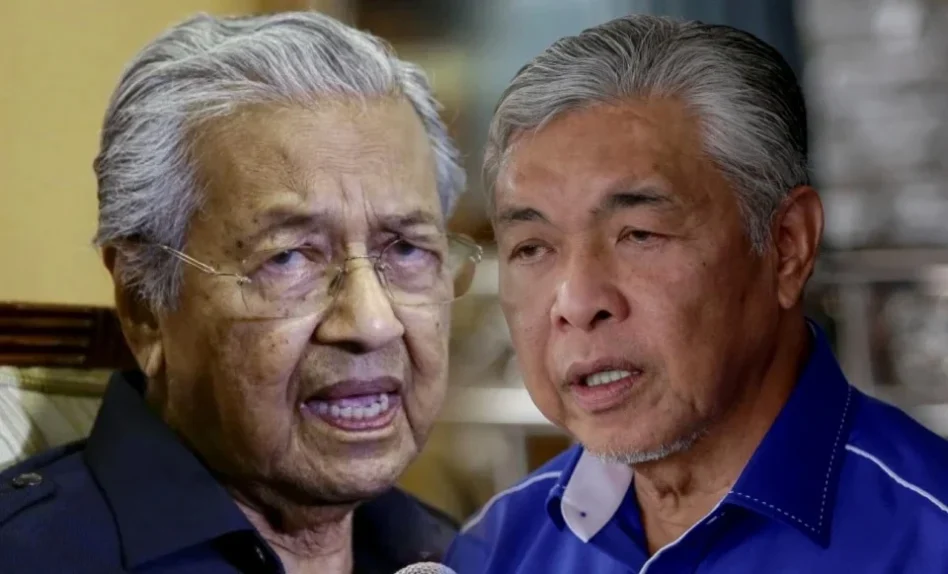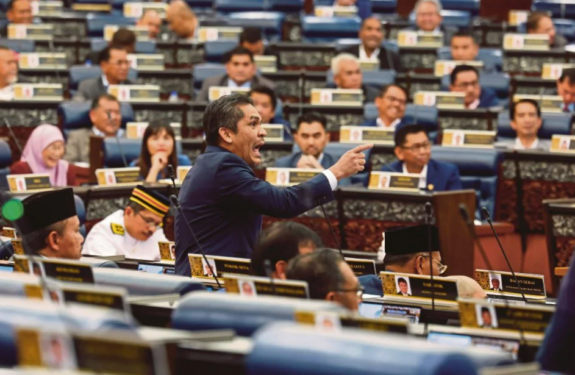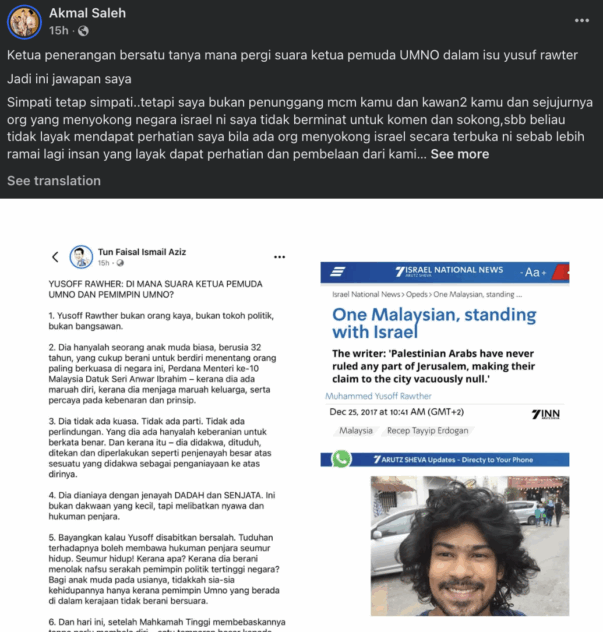ONE of the principles of democracy is the acceptance of synthesis of ideas for the common good of the country.
The moment ideas or thought processes are reduced to a single ideology, they could turn extreme and possibly lead to oppression and injustice.
This is a reason for the existence of written constitutional principles that transcends ideological boundaries.
In this regard the Mufti Bill (Federal Territories) 2024 is a cause of concern.
Even though the Mufti Bill is for Muslim community, Malaysians as whole have to be concerned about the thought patterns and intentions behind the Bill which creates a certain immunity for a position besides adhering to a certain school of thought while rejecting other views that are contrary to its ideological framework.

This is the reason that even prominent leaders of the Muslim community such as the Perlis Mufti – or even PAS president Tan Sri Hadi Awang – have criticised the bill.
The tendency to adhere to a single ideology tends to be simplistic and inimical to diverse expressions of faith and reality in a complex society.
The value of diversity and pluralism is critical for harmony in multi-ethnic and religious country like Malaysia.
Intellectual and spiritual development has no boundaries and it matures through seeking, exploring and learning from diverse schools of thought that are good and beneficial to society.
Keeping this in mind, it is vital for elected Muslim and non-Muslim MPs to urge the Prime Minister to withdraw the Bill for wider consultation with civil society.
According to the G25 group of prominent retired civil servants, the controversial Bill does not align with the principles of justice and equality, hence would contravene the Federal Constitution.
The group cited a few clauses from the Bill which it claimed contravened provisions in the constitution, including one which outlined the definition of adherence to the Sunni school of Islam.
According to G25, Islam under Article 3 of the constitution should be given a liberal interpretation and encompass a wide spectrum of schools of thought and jurisprudence.
This is where the concept of diversity and pluralism comes into play. For Muslim and non-Muslim communities in Malaysia, the acceptance of pluralism is critical since it has brought about a sense of engagement and community between cultures.
It is hoped that dialogue and consultation will be initiated with constitutional principles in mind. – Oct 20, 2024
Ronald Benjamin is secretary to the Ipoh-based Association for Welfare, Community and Dialogue.
The views expressed are solely of the author and do not necessarily reflect those of Focus Malaysia.









